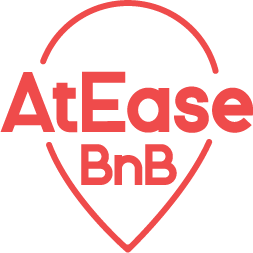Sometimes it seems like the Vancouver and Whistler real estate markets are so far-saturated that they won’t make suitable investments. For anyone just now considering their first rental property(s), there is a real fear that the moment may have passed. Even buyers looking to invest in vacation properties have had concerns that it’s not the opportunity it once was.
However, these markets are continually proving that if you do your research and act strategically, there are still plenty of opportunities for prudent investing. A mature market can be the safest time for investors to preserve capital, hedge against inflation, and create a stable nest egg for the future.
Our five-step walkthrough can help you get started as a real estate investor in Vancouver or Whistler.
Know Your Motives
If you’re looking to buy in at an undervalued price and cashout quickly on a market swing, you’ve likely missed the opportunity. Plenty of people made lots of money in Vancouver and Whistler by timing the market just right, but today it’s just not as likely to happen. Both markets are still active, but with the introduction of the ‘foreign buyers’ tax’ and the ‘vacant-home tax’ (in Vancouver), we are not seeing the massive infusions of international buyers to the same extent. That said, as political turmoil continues in Hong Kong and more residents look to leave, there is always the potential for a renewed influx of people, even with the additional costs.
If instead, you plan to buy and hold a residence as a rental, over the long-term, you don’t have to ‘time the market’ in the same way. Right now, this is looking like the best strategy for investing in both Vancouver and Whistler. Regardless of whether it’s a vacation property or monthly rental house (or apartment), you can expect sustained gains over time. In the vacation rental market, predominantly in Whistler, we’ve seen a considerable increase in local and international demand. This surge has meant a continued rise in the weekly (or daily) rates for short-term stays and improved returns for owners. In the long-term monthly rental space, most urban centres in Canada are experiencing exceptionally low vacancy rates. For investors looking to move into this space, it has meant assured renters and a healthy rate of return even after expenses.
Whether you’re hoping for a short-term market swing or buying a long-term rental investment, remember that you need to factor in your Capital Gains Tax at the time of sale. Unlike your primary residence, these investments are not exempt.
Be Financially Prepared
Before you enter into any investment, make sure you are financially ready to see it through. Whether it’s real estate, the stock market, or cryptocurrency having to sell the investment prematurely can cost you quite severely. With a rental property, you are likely going to encounter higher borrowing fees, because banks see them as riskier endeavours. When you’re thinking through your investment strategy, you need to be confident you can handle more than the purchase price. If a major repair bill, an interest rate increase, or a strata levy has the potential to unravel your finances, it’s likely not the right investment for you. While many buyers hope the rental revenue will cover the extra costs, it’s best to have resources set aside in advance to protect your investment. Even extras such as fees, taxes, and exemptions should be understood and factored into the plan. The British Columbia Real Estate Association provides a BC homebuyer tax calculator to help you access the total cost of your real estate purchase.
Keeping Track of Cash Flow
Now that you’re financially prepared and know what is affordable for you let’s start thinking cash flow. In both Vancouver and Whistler, the regular rental increases are going to keep you on the right side of inflation. Given the high level of desirability, you won’t have to worry about discounting the rental price below the carrying costs.
However, you must know what to expect before you make such a significant investment. To calculate your operating cash flow begin with the projected annual rental income. Next deduct your expenses, borrowing costs, maintenance, property taxes, and insurance. If you plan to include utilities in the rental price, add those too (although that would be unusual for a long-term rental in the Vancouver market). What you have left is your cash flow. If you have a negative balance, it means the investment is going to cost you money to operate. While not always a deal-breaker, you will need to be sure that the eventual upside is worth what you are going to have to invest in maintaining it. It’s important to keep in mind that expenses you incur on your rental property are generally deductible against your rental income. If your costs exceed your revenues, you can apply that loss against your total income to reduce your overall tax liability.
Are you an Investor or an Entrepreneur?
Being involved in real estate can be an excellent investment. Still, it’s crucial to understand precisely how involved you want to be in the day-to-day operation of your real estate venture. For those who are pure investors and wanting to share the risk, a REIT or Real Estate Investment Trust may be the best way to invest. You buy-in like owning shares in a company and you don’t own any property personally. The Trust can own residential, commercial, or industrial property, and you benefit from its operation much as a shareholder in a corporation does.
For investors who want to actually own the Property but not run it on as a business, that’s where a good property management company can help. We work with property owners who want to own their property investment outright. However, they don’t want to deal with collecting rent, fixing pipes in the middle of the night, or ever having to screen or evict tenants. Of course, if you’re more of the entrepreneur-type and like getting in and getting your hands dirty, real estate can be just that sort of investment. We also work with many entrepreneur-investors to lend a hand when it comes to screening tenants or sharing their listing while they handle the rest. The essential part is that you take some time to understand which one you are before you get going.
Selecting the right Property
To begin with, you want to understand the big picture of any community where you are considering buying a property. First, you will want to consider the local economy. If people are moving into the area for work and the neighbourhood seems to be on the rise, it’s probably going to be a good investment in the foreseeable future. In Vancouver and Whistler more specifically, this has been the case for several years. Vancouver’s population projections indicate that the City is expecting another 1.1 million residents by 2041. The population increase demonstrates that landlords will be able to expect higher rents and stable property value increases for at least the next couple of decades. For Whistler, as mentioned above, we’ve observed a growing demand from both domestic and international guests looking for holiday rentals throughout the year.
In high-demand markets like Vancouver and Whistler, you will want to keep an eye on upcoming infrastructure plans that will make your property more attractive to renters. If your property lies along the Skytrain expansion route or is within walking distance to schools, shopping, and recreation facilities, it will make it stand out in the market. If a new golf course is planned near your Whistler vacation home, it will help your listing rise to the top of the search results for off-ski-season renters.
If you’re planning to manage the property yourself, you will want to make sure you don’t live too far away. At the very least, you want to have someone you trust in the area. Dealing with renter problems from afar can quickly turn a significant investment into a burden.
Both Vancouver and Whistler, in our opinion, still have tremendous upsides for real estate investment. If you’ve been considering adding a rental property to your portfolio, there is still plenty of room for growth in the market. However, be sure to follow the steps outlined above to determine what the right option is for you and know that you’re ready to get started.
If you want to learn more about how we make a rental property into an effortless investment for owners all over the lower mainland and throughout the Whistler region, please get in touch. Our years of experience can help you decide if getting started in real estate investment is right for you.

